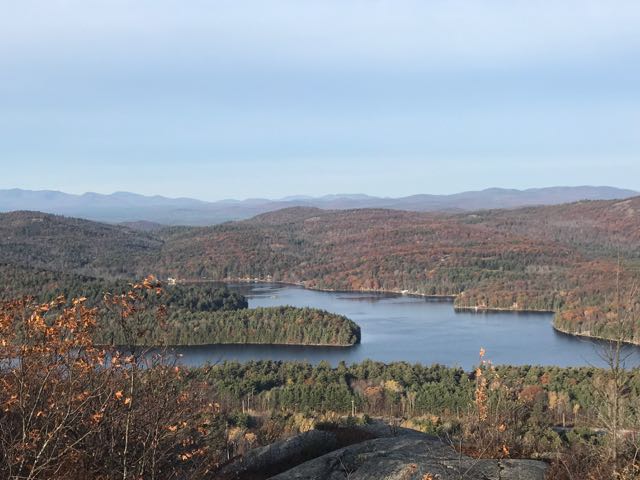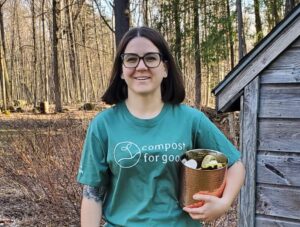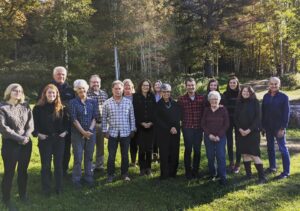A newly-completed scientific study of Adirondack wells showed that most wells that receive runoff from state roads are contaminated with salt. This study, conducted by the Paul Smith’s College Adirondack Watershed Institute comes on the heels of an earlier study that demonstrated that 84% of the contamination of surface waters by road salting could be attributed to state practices. This new study adds a high level of concern, since groundwater, the water we drink, can take decades or even centuries to refresh itself.
The study sampled nearly 400 private wells from across the Adirondack Park. The wells were divided into categories based on whether they received no road runoff, local road runoff, or state road runoff. Sodium levels in more than half of the wells receiving state road runoff exceeded New York State’s water quality guideline of 20 ppm (compared to 10% of wells that receive local road runoff). Chloride levels in 25% of wells that receive state road runoff exceeded the water quality guideline of 250 ppm, while none of the wells that receive local road runoff exceeded that level.
New York State’s Department of Transportation relies mainly on pure road salt (sodium chloride) for winter road maintenance, using more than any other state. Local crews mainly use abrasives, like sand, with a small amount of salt to keep the sand from clumping. The state’s use of pure salt explains why most groundwater salinity is due to the state’s practices, even though the NYS DOT maintains only 25% of the road network in the Adirondacks.
Well study participant Kirk Peterson said “The contamination of our well with road salt has cost us thousands of dollars in ruined appliances and corroded pipes. We can’t operate a dishwasher and have to replace faucets and other plumbing fixtures regularly because of corrosion caused by the salt. We’ve also had to replace most of our copper pipes and have been buying water to drink because of the adverse impact on our health. And now we worry about being unable to sell our house. We will hold the state fully responsible for these problems.”
A team of scientists, local officials, community organizations, and citizen activists has been pressuring the state for change for years and has worked with the NYSDOT in previous attempts at making incremental changes to the way the state manages its roads in the winter. Recently they presented these well-study results to state officials at the Departments of Transportation and Health. The state then announced more test zones with new attempts at reducing the amount of salt applied and has formed a strategic working group to monitor the pilots and suggest additional incremental changes. “We look forward to working with NYS DOT and DEC in coming up with a solution that will be good for all. Continued monitoring will gauge our collective success.” Said Randy Preston, Supervisor, Town of Wilmington.
“While we appreciate being invited to participate in the strategic working group and acknowledge that the pilots in Lake George and Lake Placid are a step in the right direction, we must insist that the state take a stronger stance to protect Adirondack waters. Based on the study, more than half of private wells located along state roads are likely contaminated with road salt, and we want the state to reexamine its entire winter road maintenance protocol and use the entire Adirondack Park as a pilot area for statewide reduction.” Said Brittany Christensen, Executive Director of AdkAction, a non-profit that has been advocating for a reduction in the use of road salt since 2010.
To help drive home the magnitude of the road salt crisis, Chris Navitsky, P.E., Lake George Waterkeeper, notes, “This is the acid rain of our time. And like acid rain, we have the ability to correct the negative trend that science is showing and protect our water resources, which are the vitality of our communities.”
The study was funded by AdkAction, The FUND for Lake George, and Paul Smiths College Adirondack Watershed Institute.
Media contacts:
Dan Kelting, Ph.D., Executive Director, Paul Smith’s College Adirondack Watershed Institute 518.327.6213 and [email protected]
Brittany Christenson, Executive Director, AdkAction 518.593.8753 and [email protected]
Chris Navitsky,P.E., Lake George Waterkeeper, 518.668.5913 X301, [email protected]
Randy Preston-Chairman, Essex County Board of Supervisors, 518 946-7179, [email protected]





